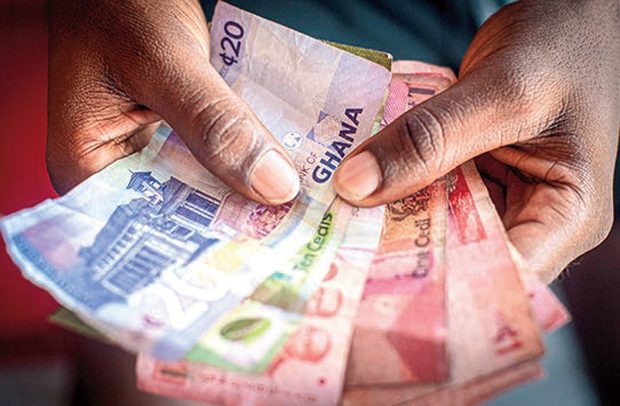PROCEEDS FROM a US$750 million Afreximbank loan agreement recently approved by Parliament should provide foreign exchange support and slow the cedi’s depreciation in the coming days, AZA Finance, Africa’s largest non-bank currency broker, has projected.
The local currency slipped to a fresh low against the dollar this week, trading at 8.129 from 8.09 at last week’s close.
Parliament approved the loan to finance infrastructure projects and bolster the country’s foreign exchange (FX) reserves.
This was after government had agreed to increase the cost of living allowance (COLA) by 15% to lessen the impact of soaring inflation and economic hardship.
Such higher inflation, coupled with a heavy debt burden and declining reserves, is crumbling foreign investment inflows, according to AZA Finance.
It said in Nigeria, the naira plunged further against the dollar this week, hitting a fresh record low of 630 from 622 at last week’s close. Nigeria’s central bank, this week, raised interest rates by 100 basis points to 14%, a three-year high and its second consecutive hike this year. The latest move comes as annual inflation hit a more than five-year high of 18.6% in June and prices of basic staples continue to rise.
“The government finally caved to demands from petroleum marketers to increase gasoline prices amid tighter supply, raising the cost of a litre of petrol to between NGN170 and NGN190 from NGN165 – a move that has eased queues at filling stations. Nigerian bread makers are protesting against their surging costs – flour, sugar, diesel – by suspending production. Against this backdrop and amid higher dollar demand and ongoing FX supply constraints, we expect the Naira to lose further ground in the coming days,” it said.
It continued that “Global food supply disruption is stoking protests across Africa. In Nigeria, bread makers suspended production in anger at the soaring cost of flour, sugar and diesel. Kenyans took to the streets, demanding the frontrunners in August’s presidential election commit to workable solutions to ease the cost of living.
“In Cameroon, where wheat costs have caused a 50% jump in bread prices, President Paul Biya ordered an immediate disbursement of US$150 million to increase wheat production in the country.”
It said “Despite such policy responses and international efforts – the US has committed US$1 billion in food aid to North Africa and the Middle East, for example – the most consistent response has been to increase interest rates as food and energy prices drive multi-year high inflation. We see no let-up in the pace of monetary policy tightening, which will help to stem further weakening of some currencies.”
(Pls use pix of local currency)

